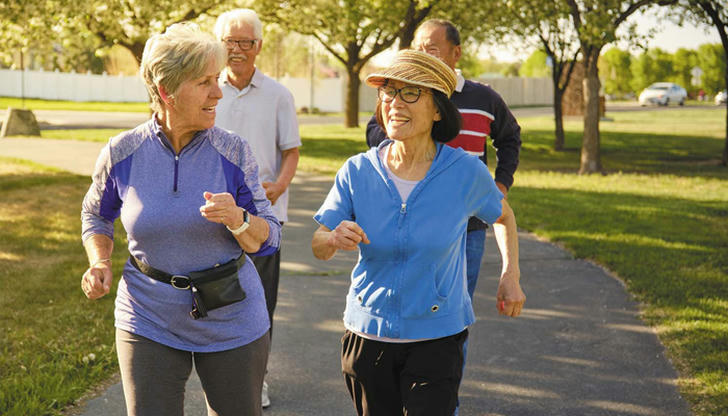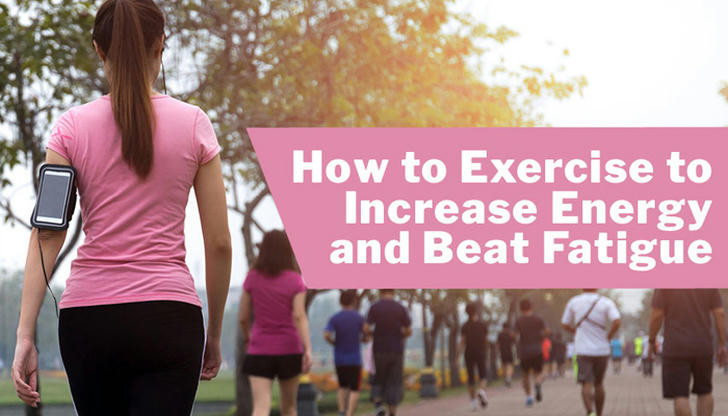Boost Your Mood and Energy: The Mental Health Benefits of Regular Exercise
The Link Between Exercise and Mental Health
In today's fast-paced world, many of us focus so much on work, family, and daily responsibilities that we forget the importance of taking care of our mental health. Exercise is often seen as just a way to improve physical fitness, but it is also a powerful tool for boosting mental well-being. Regular physical activity is scientifically proven to have profound effects on mood and energy levels, helping combat stress, anxiety, and depression. In this article, we’ll explore how regular exercise can improve your mental health, provide you with more energy, and elevate your overall well-being.

The Science Behind Exercise and Mental Health
Endorphins and Serotonin
One of the primary reasons exercise boosts mood is the release of endorphins, the body’s natural "feel-good" chemicals. These neurotransmitters are known for their ability to alleviate pain and trigger a positive feeling in the body. Exercise also increases serotonin levels, which help regulate mood, reduce anxiety, and improve overall emotional stability. Studies have shown that even a short burst of moderate exercise can enhance these neurochemical processes, leading to immediate feelings of happiness and contentment.
Brain Plasticity
Regular exercise isn’t just good for the body—it’s great for the brain too. Physical activity helps stimulate neuroplasticity, which is the brain’s ability to form new connections and adapt over time. This is particularly important for learning and memory. As you exercise, blood flow to the brain increases, nourishing brain cells and helping you think more clearly. Exercise also plays a role in increasing the production of growth factors that help in brain repair, further supporting cognitive health.
Stress Reduction
When you're under stress, your body produces cortisol, the hormone responsible for the “fight or flight” response. Chronic stress can lead to elevated cortisol levels, which can have a negative impact on your health. However, exercise helps reduce cortisol levels, making you feel more relaxed and less anxious. A consistent exercise routine can help you better manage stressful situations and improve your ability to handle daily challenges.
How Regular Exercise Boosts Mood

Combatting Depression
Exercise has long been linked to improved mental health and the reduction of depressive symptoms. Numerous studies have shown that individuals who engage in regular physical activity report fewer symptoms of depression. In fact, exercise can be as effective as medication or therapy for some people in treating mild to moderate depression. Physical activity boosts mood by promoting the release of endorphins, providing a natural high that counters feelings of sadness and fatigue.
Fighting Anxiety
Exercise is also highly effective in combating anxiety. When you exercise, the body enters a "relaxed state" that counteracts feelings of nervousness or unease. It’s been shown that physical activity helps reduce muscle tension, which can contribute to feelings of anxiety. Moreover, aerobic exercises like running or cycling release chemicals in the brain that calm the nervous system, reducing the overall feeling of anxiety and stress.
Improved Sleep Quality
Exercise doesn’t just benefit mood during the day—it also contributes to better sleep at night. Regular physical activity helps regulate your circadian rhythm, making it easier to fall asleep and stay asleep. Better sleep enhances mood, reduces irritability, and provides the energy needed to face the day ahead. Research indicates that people who exercise regularly experience a deeper, more restorative sleep, which ultimately contributes to improved mental health.
Self-Esteem and Confidence
There’s no denying the boost in self-esteem that comes with exercise. Regular workouts help improve body image, strength, and fitness levels, all of which can contribute to a positive self-image. As your physical health improves, so does your confidence in your abilities and appearance. This confidence can extend to other aspects of life, helping you tackle challenges with a more positive attitude.
The Energy-Boosting Effects of Exercise

Increased Blood Circulation
Exercise helps improve circulation, delivering oxygen and nutrients to the muscles and brain more efficiently. As a result, you’ll feel more energized throughout the day. Regular physical activity promotes better heart health, enabling your body to use oxygen more effectively, which can lead to a noticeable boost in energy levels.
Improved Oxygen Flow
When you exercise, your body becomes more efficient at utilizing oxygen, increasing endurance and reducing feelings of fatigue. Over time, this improved oxygen flow leads to greater stamina, making it easier to complete daily tasks without feeling exhausted. Whether it’s walking, jogging, or swimming, any form of consistent exercise can contribute to a higher energy level and better overall vitality.
Consistency Over Intensity
Many people think that to get the benefits of exercise, they need to engage in high-intensity workouts. While intense exercise can certainly increase energy levels, it’s not always necessary. In fact, low-intensity exercises like walking, yoga, or light stretching, when done consistently, can provide sustained energy throughout the day without causing the fatigue that sometimes follows intense workouts. It's about building a routine that fits your lifestyle and helps maintain long-term energy levels.
Practical Ways to Incorporate Exercise into Daily Life

Start Small
If you’re new to exercise, it’s important to start small and gradually increase your activity level. Begin with 10-15 minutes of exercise a day, and as your body adapts, increase the duration and intensity. Starting small ensures you won’t feel overwhelmed and helps prevent burnout.
Make it Enjoyable
The best way to stay motivated is by choosing activities that you enjoy. Whether it’s walking, swimming, cycling, or dancing, find an exercise you look forward to. The more fun it is, the easier it will be to make it a consistent part of your daily routine.
Social and Group Activities
Exercising with others can increase accountability and provide social interaction, both of which are beneficial for mental health. Consider joining a fitness class, going for walks with friends, or participating in a team sport to make exercise more enjoyable and build connections with others.
Routine Integration
One of the easiest ways to incorporate exercise into your daily life is by integrating it into your existing routine. Walk or bike to work, take the stairs instead of the elevator, or do a quick workout during your lunch break. These small changes can add up over time, helping you stay active without significantly altering your schedule.
Exercise and Mental Health: Myths and Misconceptions

"Exercise is Only for Physical Health"
Many people assume that exercise only benefits the body, but the reality is that regular physical activity can be just as crucial for mental health. Exercise has a proven track record of improving mood, reducing stress, and combating mental health issues such as anxiety and depression.
"You Have to Exercise Intensely to Benefit"
It’s a common myth that only high-intensity exercise provides mental health benefits. In fact, moderate exercise, such as walking or gentle yoga, can have a significant impact on mental well-being without the physical toll of intense training.
"Exercise Only Helps When You’re Happy"
Even if you're feeling down or anxious, exercise can still have a profound effect on your mental health. Research shows that physical activity helps regulate mood, even in individuals who are experiencing mental health challenges. The key is to start moving, regardless of how you feel, and allow exercise to lift your spirits.
Conclusion: Start Moving for Better Mental Health
Exercise is one of the simplest and most effective ways to improve your mental health. From boosting mood and reducing stress to increasing energy and promoting better sleep, the mental health benefits of regular physical activity are undeniable. So why not make a commitment to yourself today to start incorporating exercise into your daily routine? Your body and mind will thank you for it!
